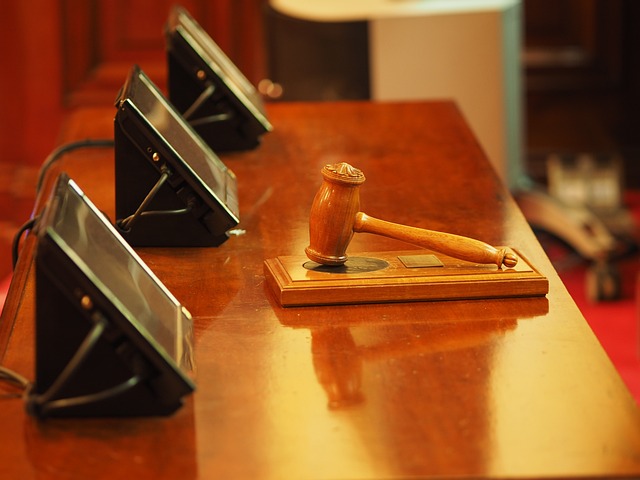what does disposed mean in court
What Does It Mean When a Case Status Says Disposed?
When A Case Is Labeled As “Disposed,” It Signifies That The Legal Proceedings Associated With The Case Have Reached A Conclusion. This Can Happen For A Multitude Of Reasons, Each Of Which Carries Its Own Implications And Outcomes. Let’s Delve Into The Various Ways In Which A Case Can Be Disposed And What Each Outcome Entails.
Understanding “Disposed” in Court: A Comprehensive Guide
What Does a Disposed Case Status Mean?
Have You Ever Come Across The Term “Disposed” While Reading About Legal Matters? It Might Sound A Bit Confusing, But Fear Not – We’re Here To Shed Light On This Important Concept. In The Realm Of Law, Saying That A Case Has Been “Disposed” Means That It Has Been Closed. However, The Process Of Disposal Can Be Quite Nuanced, And There Are Various Ways A Case Can Be Disposed. In This Article, We’ll Dive Deep Into The Concept Of Disposing Cases In Court, Exploring Its Different Facets And Implications.
Common Ways of Disposing Cases
Dismissal with Prejudice
If a judge dismisses criminal charges “with prejudice,” two significant outcomes emerge. Firstly, the accused individual is set free. Secondly, the state is prohibited from bringing the same charges against the individual in the future. From the perspective of a defendant, this is an optimal resolution.
Dismissal without Prejudice
In the event of a dismissal “without prejudice,” the accused person is also acquitted, but the prosecution retains the possibility of reinstating charges based on the same conduct. This often happens when technical issues arise in the prosecution’s case.
A Guilty Plea
Pleading guilty eliminates the need for a trial, as the trial’s purpose is to establish guilt. Many guilty pleas result from plea bargains, wherein the accused agrees to admit guilt to a lesser offense in exchange for certain concessions.
A Guilty Verdict
Opting for a not guilty plea leads to a trial. If the jury or judge finds the defendant guilty and an appeal isn’t pursued within a specific timeframe, the case is disposed of, and the verdict can no longer be contested.
The Appeal and Loss
Usually, an appeal can only be lodged once in a Kentucky criminal case. A loss in appeal leaves the federal courts as the sole avenue for continuing the case, a rarity.
A “Not Guilty” Verdict
A “not guilty” verdict limits the grounds on which a prosecutor can appeal the decision. This outcome emphasizes the presumption of innocence.
Double Jeopardy
Double jeopardy prohibits double prosecution for the same offense, except when both state and federal laws are involved for certain offenses.
Lack of Jurisdiction
Cases can be disposed if the court lacks jurisdiction. For example, if the court is situated in the wrong state, charges might be dropped, albeit potentially leading to subsequent charges in the appropriate jurisdiction.
The Prosecutor’s Formal Withdrawal of Charges
A change of heart by the prosecution can lead to formal withdrawal of charges. This could be due to uncooperative witnesses or doubts about the defendant’s guilt.
Completion of Sentence
Serving the entirety of the imposed sentence, including jail time, fines, probation, and other penalties, signifies completion of the legal obligations associated with the case.
Factors Influencing Disposal
Several factors influence the decision to dispose of a case, including the strength of evidence, legal technicalities, witness cooperation, and the broader legal context.
The Implications of Disposal
The disposal of a case holds lasting implications, impacting an individual’s criminal record, legal history, and potential future legal matters.
FAQ about What Does It Mean if My Case Status Is Disposed?
- Q: Can a case be reopened after being disposed? A: In some cases, yes. Disposal doesn’t always mean permanent closure; certain circumstances may allow for case reopening, such as the discovery of new evidence.
- Q: How does double jeopardy work? A: Double jeopardy prevents an individual from being tried twice for the same offense, except in cases involving both state and federal jurisdictions.
- Q: Can a guilty verdict be appealed? A: Yes, though the grounds for appealing a guilty verdict are limited, and a strong legal basis is necessary.
- Q: What is the significance of jurisdiction in case disposal? A: Jurisdiction ensures that a case is tried in the appropriate legal jurisdiction, and lack of it can lead to case dismissal.
- Q: Is completion of sentence equivalent to expungement of records? A: No, completion of sentence signifies fulfilling legal obligations, while expungement involves erasing records from public view.








